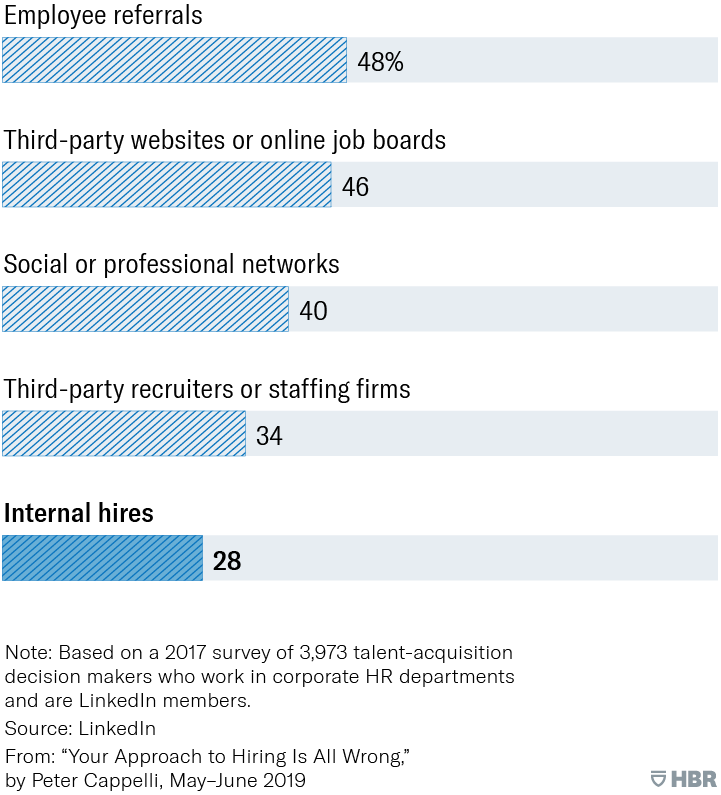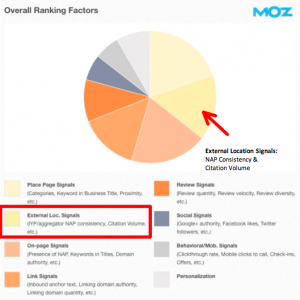Startups across all industries are facing a revolutionary change in the landscape they operate in. As their venture grows, most startup founders find that they are spreading themselves too thin, managing the nitty-gritty of their business. In such cases, hiring a C-level employee makes complete sense as it reduces the workload on the founder, allowing them to focus on critical aspects like working towards the business vision and startup funding.
However, hiring a C-level executive isn’t an easy undertaking. In fact, startups often face tremendous dollar costs, negative business results, and poor productivity as a result of bad senior hires.
If you are looking at hiring a leader for your growing team, we have a few tips to get you going.
1. Use the Right Senior Hiring Criterion
Though academic credentials, professional experiences, references, and skills are among the core criteria for hiring any new team member, cultural and fit matters the most for senior executives.
a. Cultural Fit
Countless studies have proven that an organization’s culture has a strong impact on its employees’ turnover and business success. In fact, culture-driven firms are highly successful and enjoy a serious edge over their competitors. Take, firms like Google, Twitter, Adobe, and Facebook for instance. All of them are well-known for their positive work culture and high employee engagement.
Hence, besides considering the experience and qualifications you should see of the candidate meshes with your startup’s culture. Hiring such a leader will strengthen the core values and beliefs of your business and improve employee satisfaction.
Besides gauging the standard skills, your interview should be designed to assess whether or not the prospective hire ‘fits into your culture.’ This is one of the most important and tough attributes to measure. However, looking into the candidate’s past work experience, company culture, and performance will help you understand the candidate’s profile better.
For instance, if the candidate’s previous organization had a team-based culture, you can expect the person to be a team player. You can further confirm this fact by asking the individual to spend some time in the office. Alternatively, you can conduct situational judgment tests or arrange informal meetups with the team.
Here’s a post by Courtney Seiter that offers interesting insights on how to measure the cultural fitness of a C-level candidate.
b. Network Fit
The most successful firms are changing their senior hiring criteria by focusing on the candidate’s network fit – the candidate’s ability to fit with or complement the work style of the current team. Hiring a team leader who’s colleague-centric can not only boost employee engagement but also improve the business performance within a short time.
2. Research the Prospective Hire
Your startup’s senior management team will have a huge impact on its top and bottom line. Hence, it’s critical to get the right people on board. Here are a few tips to consider.
a. Hire an Executive Search Partner
An executive search can help you attract highly-skilled senior management talent that matches your business requirements. Executive search firms tend to have knowledge of and access to the top management and board directors of various firms. Hence, they can offer you a pool of top executive talent with the right mix of knowledge, skills, and abilities to achieve your goals.
The executive search firm you hire should be well aware of your company’s vision and mission, thereby acting as an extension of your business. Make sure you choose a firm that uses an efficient research-led search process to sound out potential candidates. Hiring such professionals will also give your prospective candidates a good impression of your business.
b. Use Your Network
Technology has changed the way people connect, and the recruiting industry is no exception. For instance, LinkedIn is not merely a connection or a sourcing platform. It introduces you to new talent and keeps you updated on the latest industry association workshops, webinars, forums, and seminars for professionals in your field. You can use this social channel to connect with people, learn about their expertise, and expand your professional network.
c. Go beyond Regular Background Verification
Since senior executives are expected to set the strategic direction for your firm and steer your team towards success, recruiting an able captain becomes critical. Before entrusting this important responsibility to a deserving candidate, it is vital to conduct a background screening by checking their professional records, relationships, academic records, social media presence, court cases, and criminal records.
Background check firms often use the latest technology and in-person searches to reveal important information about the candidate, allowing you to make the best hiring decision. Besides offering a free background check, these firms have preset packages that let you know the credentials of the candidate across parameters.
3. Weigh Internal versus External Senior Hires
One of the biggest dilemmas faced by a startup owner when filling up a higher-up position is whether to promote someone internally or look outside for options. It’s tough to choose any one option; yet, it’s worthwhile spending some time considering the pros and cons of each. This will help you make an informed and suitable senior hiring decision.
A survey by Harvard Business Review reveals that when it comes to hiring for senior positions, organizations are interested in external talent than in their own employees.

This is primarily because outside hires bring in fresh perspectives and ideas and additional skills and experiences that support startup growth. Also, there’s a lesser chance of internal resentment and conflict as your existing employees will not feel the need to compete with each other to get ahead.
Yet, external senior hires aren’t profitable for all businesses. Since they are new to the firm, they take more time to fit into the organization’s culture or reach the rising performance expectations than internal candidates. The work style and priorities of a new senior executive may also be different from the existing employees. Further, the new leader is often unable to tap into informal and formal sources of organizational power (unlike current employees), leading them to a downward spiral.
An internal team member has internalized the company’s vision, improving the chances of them excelling in their role and contributing to business success. Promoting a team member internally will also help you advance your own talent and improve team retention. It also keeps your hiring costs low which is a critical factor for startups.
Carefully weigh your options based on the powerful benefits and critical drawbacks of each. Consider your firm’s goals and the impact you want the senior hire to have on them. If your business is looking for a fresh pair of eyes or demands new industry ideas, hire externally. Otherwise, it’s always wise to hire from within to retain your high-potential employees, improve performance, and strengthen company culture.
4. Manage Your Existing Employees
Getting an outside talent to lead your existing team is a tricky situation to deal with. It is natural for your team to be suspicious of the new leadership. Here’s how you can effectively manage this situation, encouraging your team to feel positive about the new hire.
a. Be Transparent
When scaling your startup you may need to make several important decisions, including hiring a new boss for your current junior and mid-level employees. Be transparent about your decisions and let each member know about the latest developments. Gently remind them that in order to grow the business needs to hire experienced moneymakers who can help scale the company.
Encouraging a transparent culture will not only help them better understand the firm’s vision and goals but also set realistic expectations in the future.
b. Involve Your Team
If you have a promising senior-level candidate in mind, have your team interact with the person. This will not only help you gauge whether or not the new member is a fit for your firm but also ease all the ‘newcomer’ anxiety that’s probably building up among your existing employees.
The person you are planning to hire will be leading your team in the future. Hence, it’s important to know your team’s opinions into consideration before making a hiring decision. A few startups also invite their employees to attend the final presentations by executive-level job candidates.
Regardless of how urgently you want this C-level manager on board, take time to hear what your employees have to say and address any concerns they may express.
c. Go Slow When Onboarding
Once you have hired a senior manager, take your time with the onboarding process. You may have conducted thorough research before hiring a rockstar for the job; however, that doesn’t mean the person will take complete charge from day one.
In fact, during the first two to three months, the new hire and your existing team are trying to study each other’s abilities and commitment towards the firm’s vision. Therefore, it’s important to stay close to the new hire for a few months and make sure they are completely aware of the business goals.
Have a clearly-defined training module for the new hire. Define job responsibilities, priorities, and constraints. Train the new hire to effectively communicate with the team – up, down, and sideways. Finally, introduce the manager to each member of your team with a brief note about their roles and how they are helping in achieving the organizational goals.
Wrapping Up
The more your new venture grows the more you will feel the need for hiring a high-level manager who can help you out with strategic business decisions, manage your team, and oversee operations, sales, and marketing. Hiring an able C-level executive for your new venture is a great way to effectively manage the core areas of your business.
However, C-level hires aren’t easy. Use the tips shared in this post to hire a senior manager who can make a significant contribution to your business success.
Business & Finance Articles on Business 2 Community
(92)







